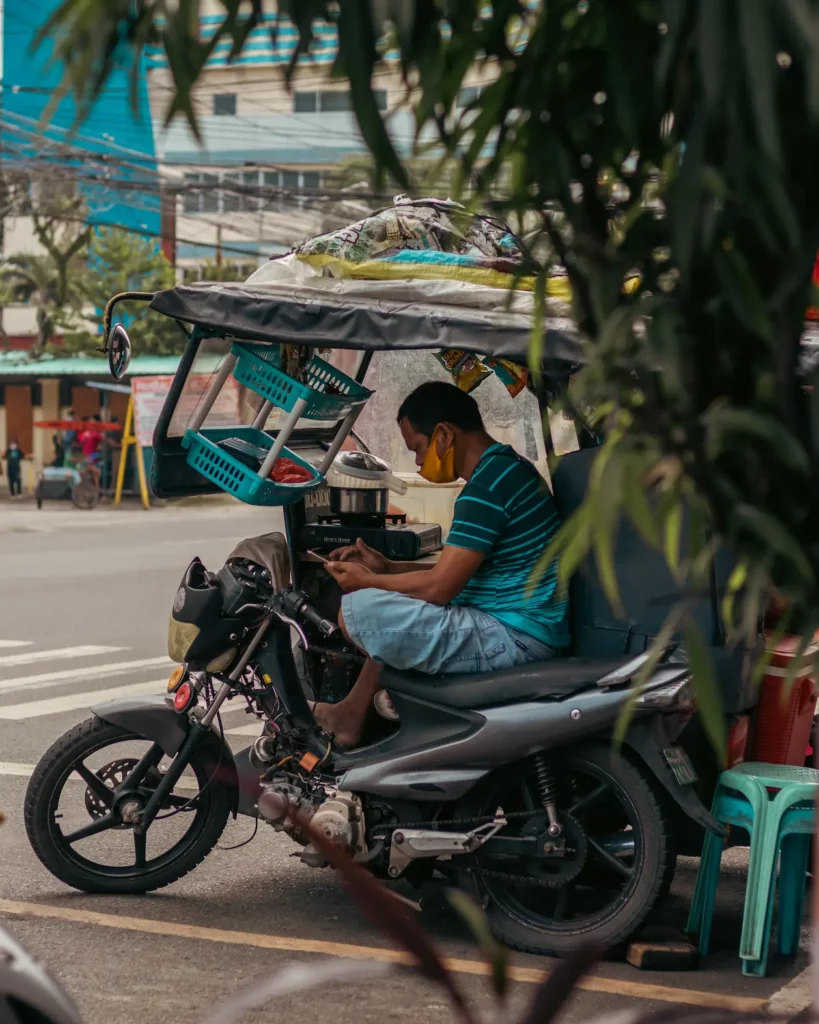
MSMEs are the backbone and lifeblood of developing nations like India, Cambodia, Indonesia, the Philippines, and many others in Africa. Since MSMEs make up the majority of a nation’s economy, national governments and their collaborations with international organizations are working extremely hard to encourage the creation, growth, and sustainability of MSMEs.
Cambodia
Micro, Small, and Medium-Sized Enterprises (SMEs) play a significant role in the economic and social development of Cambodia. As they account for 70% of employment, 99.8% of businesses, and 58% of GDP in Cambodia, MSMEs significantly contribute to the country’s economy, according to the 2018 Annual Report of the Ministry of Industry, Science, Technology, and Innovation. There were 15,707 small and medium-sized businesses (SMEs) and 1,522 large businesses overall. There were 139,933 micro-enterprises, or businesses with fewer than 10 employees. MSMEs face numerous difficulties, including access to financing, a lack of technical knowledge and skills, inadequate support and facilitation from the relevant institution, inadequate electricity supply, expensive business start-up costs, and the existence of informal MSMEs. In 2017, MSMEs generated about one million jobs, while large enterprises generated close to that of MSMEs. According to goal 8 of the Cambodian Sustainable Development Goal Framework 2016–2030 (CSDGs), the Cambodian government supports SMEs in terms of productive activities, the creation of respectable jobs, entrepreneurship, creativity, and innovation. It also promotes the formalization and expansion of these businesses, including by providing access to financial services. The significant contributions made by MSMEs to the expansion of the national economy have been acknowledged by the Cambodian government. One of the four pillars of the most recent Cambodia Industrial Development Policy (IDP 2015–2025), which outlines the strategy for the nation’s structural economic change, is the upgrading and modernisation of MSME. By 2025, 80% to 95% of MSMEs in Cambodia are expected to have finished their official registration, according to the IDP 2015–2025. To encourage MSMEs to register voluntarily and decrease the number of informal MSMEs, the government provides an alluring tax incentive. These tax benefits include a three-year income tax exemption for newly registered businesses and a five-year exemption if further conditions are met, as well as a waiver of the monthly 1% prepayment of income tax and the yearly minimum tax for the duration of the income tax exemption period. With the intention of providing financing for SMEs, the SME Bank officially launched in early 2020 with an initial capital of $100 million. The bank is currently working on the “SMEs co-financing project,” a joint venture with 23 commercial banks, two specialized banks, and seven microfinance institutions (MFIs). Additionally, the Techno Startup Center, which the government established in April 2019, offers training and mentoring services to help young entrepreneurs turn creative ideas into working business models by connecting them with a network of seed fund investors and cutting-edge research labs. The Entrepreneurship Promotion Fund and the center have a tight relationship (EPF). The EPF, a fund maintained by the MEF with a $5 million annual budget, intends to support MSMEs and startups in Cambodia.
Indonesia
In Indonesia, MSMEs made up 97% of the workforce in 2020 and contribute considerably to the country’s economy. Nearly half of Indonesia’s SMEs are owned by women. MSMEs are essential for fostering women’s empowerment in Indonesia as well as for reducing poverty, boosting income distribution to rural areas, and creating inclusive work possibilities. The number of MSME, which has reached around 64.2 million, is still increasing. By 2021, they are expected to contribute up to 62.36 percent of the GDP, with a goal of 65 percent. The MSMEs are the backbone of Indonesia’s economy, yet many of these businesses frequently have trouble getting access to financial services, the market, and other necessities. The Indonesian government supports MSMEs by way of laws, programs, money, and other forms of assistance. During the epidemic, the government stepped up efforts to digitally transform MSMEs, and with its assistance, 18.5 million MSMES in Indonesia are now part of the digital ecosystem. By 2024, the Indonesian government hopes to have approximately 30 million MSMEs (small and medium-sized firms) operating within the digital ecosystem.
By increasing market opportunities, reducing tax implications, deregulating and streamlining the application process for business permits for MSMEs, and other measures, the central government’s policies and regulations—including the most recent regulation Omnibus Law—are intended to support the overall growth and contribution to the MSME sector. They also aim to assist individual business entities in growing. Additionally, the Bank of Indonesia has adopted policies that make it simple to access start-up capital, growth capital, an effective payment ecosystem, and encourage digital innovation to connect all economic agents to MSMEs. However, there are still a number of obstacles that prevent the expansion of MSMEs in Indonesia, including logistical issues, capital availability, product marketing, a lack of financial and digital literacy, and others. The government has set a goal of increasing MSMEs’ exports from 14 percent in 2020 to 15.12 percent in 2021 in order to boost their ability to compete on the global market and contribute more to Indonesia’s exports. By 2024, the export goal will rise even further to 21.60 percent. The construction of SMESCO Eastern Hub for MSME products from the eastern areas of Indonesia is one of the schemes the government has devised to create a favorable export environment for MSMEs. MSMEs continue to depend heavily on microfinance for their survival and long-term viability. During the COVID-19 pandemic, more than 80% of MSMEs experienced declining revenue, which prompted a demand for additional capital support from microfinance institutions with the aim of utilizing various program initiatives mandated by the government along with the broader digitization efforts currently under way would support MSMEs growth and sustainability.
Indonesia’s whole economy depends on the expansion and sustainability of MSMEs, thus the government must identify gender-based requirements within these businesses, including the opportunities, difficulties, and barriers that both men and women MSMEs must overcome. Increase the involvement of local women and men in MSMEs in the creation of policies and programs. To promote female business leadership and network, it is important to encourage women MSMEs in particular to engage in community forums, meetings, and decision-making processes. Increase support for business owners by working with the private sector on initiatives including opening and expanding market access and giving MSMEs access to financial and digital literacy training.
Philippines
The Philippines is a developing market and a recently industrialized nation whose economy is shifting from one that is concentrated on agriculture to one that is centered on services and manufacturing. A report from the Department of Trade and Industry (DTI) states that as of 2020, 95.7 %, or 952,969, of the 957,620 businesses operating here are MSMEs, and only 0.49 %, or 4,651 large businesses. Micro businesses make up 88.8%, or 850127, of all MSMEs, while small businesses make up 10.2%, or 98126, and medium-sized businesses make up 0.49 percent (4,716). MSMEs make up 60% of all exporters and contribute 25% of the nation’s overall export revenues. The MSME sector is a significant employer, providing 5.38 million jobs, or 62.66 percent of the nation’s total employment. Micro companies contributed the most to this total, at 29.38 percent, followed by small businesses at 25.78 percent and medium-sized businesses at 7.5 percent. Lack of funding is the main obstacle to MSME growth and development. Despite the fact that government financial institutions and commercial banks have funds available, the majority of MSMEs have trouble obtaining funding due to a lack of collateral, short credit histories and banking relationships, weak financial records, and unreliable business plans. Additionally, according to data from the nation’s Department of Trade and Industry (DTI), only 6% of MSMEs use sophisticated digital technologies in their operations, with 23% claiming no digitalization at all. For MSMEs to grow and keep up with Southeast Asia’s shifting terrain, digitalization is essential. In order for the Philippines to recover economically post-pandemic due to digital innovation, change, and future economic growth, the United Nations has advocated for MSME expansion. Greater prospects for the digital transformation of MSMEs would be provided by public-private partnerships and engagement between designated government entities and service providers in the telecommunications and technology industries. Micro entrepreneurs will be given the tools they need to investigate and implement e-commerce thanks to government support in the form of digital transformation and digital literacy programs from the Department of Information and Technology. In 2025, it is anticipated that the Philippines’ e-commerce market would have a gross merchandise value (GMV) of 15 billion USD.
The Philippine government has a number of initiatives, regulations, and policies in place to support the expansion of MSMEs. The Barangay Micro Business Enterprise Act, also known as Republic Act 9178, bestows incentives and other privileges on these companies, including exemption from income tax and the requirement to pay the minimum wage. The Go Negosyo Act (RA 10644), which encourages company efficiency and makes more than 500 services more accessible to MSMEs, In addition to offering training, courses, and development programs, Go Negosyo Centers also offer advice on business conceptualization and feasibility, financing, management, capability building, human resources, marketing, and other support services like business registration assistance and business advisory services. These services are essential for starting a business and growing it into a sustainable enterprise. The Philippine Business Registry enables sole proprietorships to register their business names with the DTI and obtain their employer registration and tax identification numbers online. The Philippine Export Service Providers and Consolidators Association (PESPCA) was established in collaboration with the Department of Trade and Industry to increase the competitiveness of Philippine exports on the global market.



